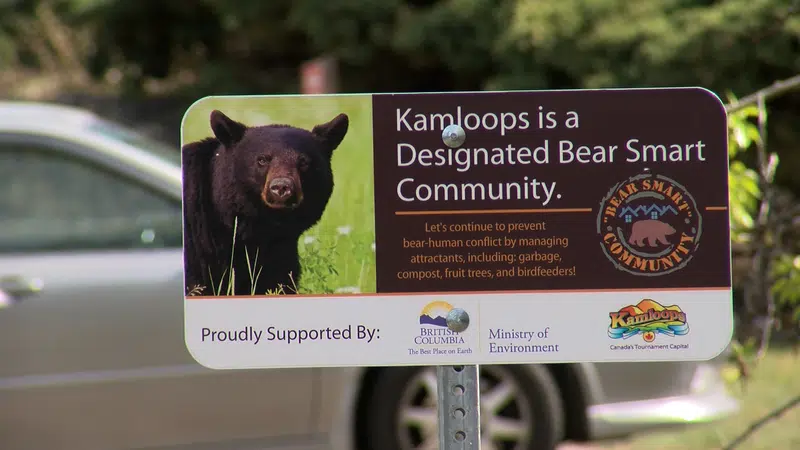
Conservation officers busy this spring responding to human-bear conflicts
KAMLOOPS — It’s the time of year when more and more bears are awaking from their winter hiberation and on the hunt for food, mainly from natural sources in Kamloops, but their strong sense of smell can also lead them to local neighbourhoods.
Neighbourhoods like Waddington Drive in Sahali have been the highest traffic areas for bears so far this spring. Local conservation officers say there have been 18 bear-related calls in Kamloops, as recently as over the weekend.
“For the most part, just sightings,” noted conservation officer Austin Lord. “There have been a couple complaints of bears getting into people’s garbages. Bears, they aren’t going out looking for your garbage as they are travelling their natural corridors they may smell it.”


